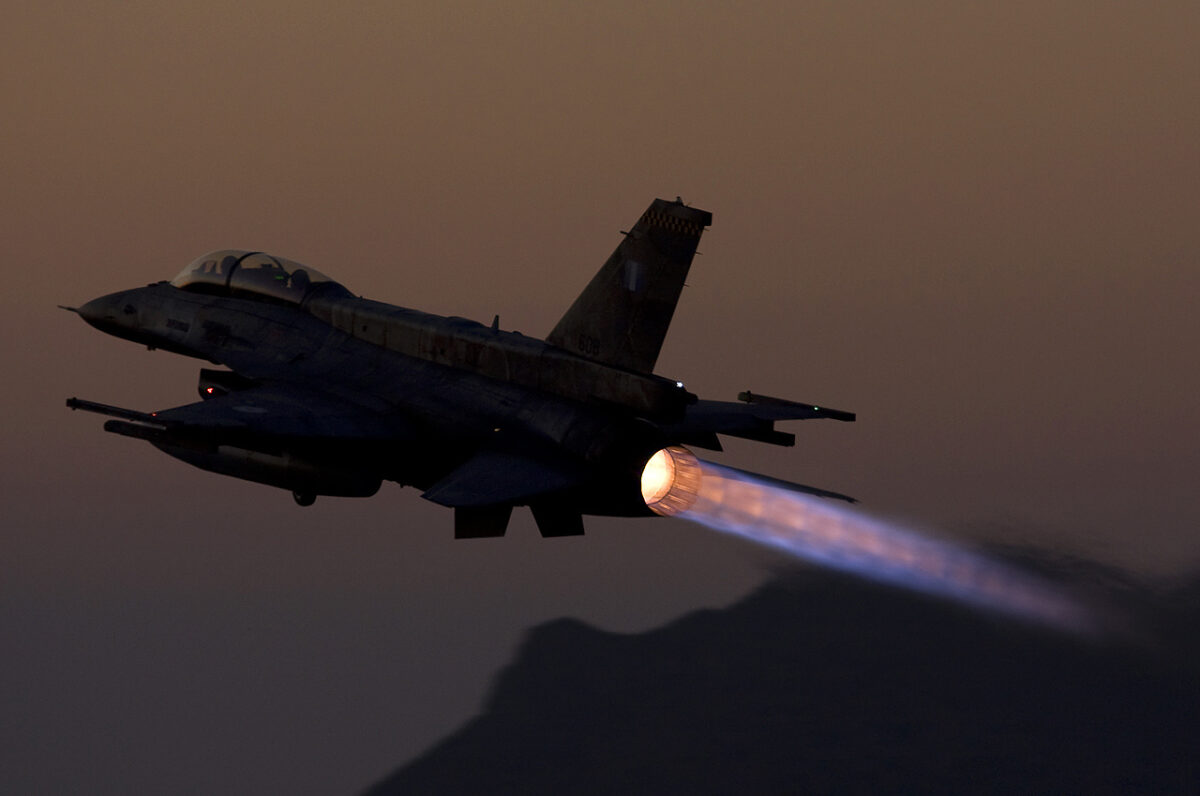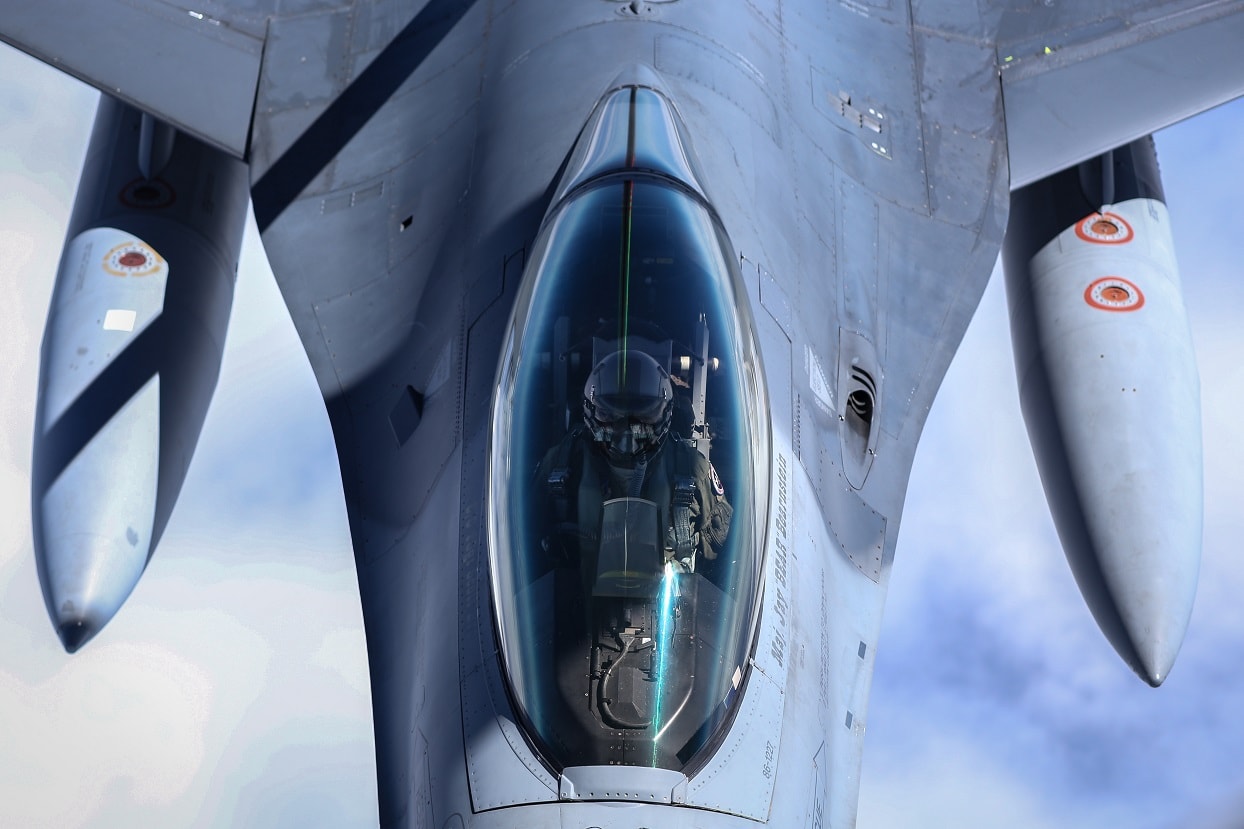Greece and Turkey, two NATO allies, are once more embroiled in a fierce back-and-forth that could very well lead to war.
At a time when Russia is threatening the physical integrity of Europe with the largest war in the Continent since World War Two, Turkey is endangering the unity of NATO with highly hostile rhetoric and actions.
What’s Going On?
Lately, Turkish President Tayyip Erdogan has gone on a full-blown offensive against Greece across the international stage, even using the recent United Nations meeting to make his case.
The Turkish leader accuses Greece of militarizing Greek islands with troops in violation of the Lausanne Treaty that was signed in 1923 after the end of the Greco-Turkish War of 1919-1922.
On the other end, Greek Prime Minister Kyriakos Mitsotakis is playing fierce defense, countering the Turkish claims and urging caution.
The Greek leader is arguing that the Lausanne Treaty allows Greece to have national guard troops on the islands and highlights that Turkey has an amphibious invasion force ready and primed just across the Greek islands. Moreover, Mitsotakis emphasizes the daily violations of Greek airspace by Turkish fighter jets and the weaponization of immigrants by Ankara in order to pressure Greece and the European Union into concessions.
For the casual observer of the Balkans and the eastern Mediterranean, verbal fencing between Greek and Turkish leaders is nothing new. The two countries share an animosity that goes back at least 800 years.
Back in 1996, the two countries almost went to war over the sovereignty of the Imia inlet in the Aegean Sea. Timely U.S. intervention at the highest levels prevented a war but not before a Hellenic Navy helicopter crashed under unspecified circumstances, killing all three of its crew.
Then, in 2020, the two countries almost went to war again when Erdogan physically questioned the sovereignty of the Greek exclusive economic zone by deploying a survey ship within it. For weeks the two militaries were on the red, and they almost came to blows when a Greek frigate rammed a Turkish destroyer within Greek waters.
But upcoming events might very well turn this animosity hot.
Why a War Could Happen
Both countries have elections coming up next summer. But Erdogan’s numbers don’t look good at all. His erratic management of late has destroyed the Turkish economy, while his actions on the international stage have alienated Turkey from its Western allies and partners.
He bought the Russian S-400 anti-aircraft system, which resulted in Turkey getting kicked out of the F-35 Joint Strike Fighter program. Erdogan also is intentionally causing trouble to Sweden and Finland and delays their entrance to NATO.
Turkey is increasingly seen as an agitator and troublemaker that is working too closely with Russia, Iran, and China. If it weren’t for the country’s strategic location, there is no doubt that the West would have “dumped” Turkey a long time ago.
Current polling has Erdogan out of office after 20 years. As a leader who has defined modern Turkey, Erdogan won’t leave power easily, not after having survived a coup in 2016, to which he responded by strengthening the office of the president.
So, there is a high likelihood that Erdogan will seek a limited crisis or military confrontation with Greece to distract the domestic audience and gain popularity with the Turkish people—a recipe as old as time. But that is exactly where the real threat is.
Small “Incident” or Full-Blown War?
It is critically important to highlight that talking about a limited crisis isn’t accurate anymore. To be sure, past Greek governments were at ease, and even said so, that a war with Turkey would be limited on the island or inlet in question and would soon end following international diplomatic intervention by the U.S. and the European Union, much as it happened in 1996.
However, that is no longer the case. Greece has changed its doctrine and is ready to fight an all-out war across the area of operations should Turkey attack. It is critically important for both sides to understand what that means.
There is a real danger if Ankara believes that it could get away with an “incident” that would last a few days or a week and would give Erdogan that infusion of domestic popularity and international respect that he so desperately wants, when in reality, Athens is ready to fight a proper, defensive war across the battlefield and with every means should it be attacked.

Greek Air Force Lockheed Martin F-16DJ Fighting Falcon taking off at Chania
In international politics, understanding where your adversary is coming from is critical, and right now, Erdogan doesn’t seem to understand Greece and its determination to fight off any aggression. And that is a dangerous recipe.
Expert Biography: A 19FortyFive Defense and National Security Columnist, Stavros Atlamazoglou is a seasoned defense journalist specializing in special operations, a Hellenic Army veteran (national service with the 575th Marine Battalion and Army HQ), and a Johns Hopkins University graduate. His work has been featured in Business Insider, Sandboxx, and SOFREP.

